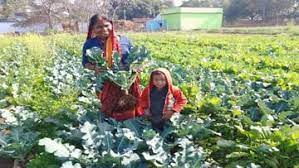Hazards of use of pesticides in agriculture and horticulture is beyond one’s imagination. The immediate visible after effects like upset stomach or nausea may not be common but long term effects are catastrophic and too much damaging for all forms of life. Researchers have already proved that pesticides are directly responsible for numerous diseases like cancer, Alzheimer’s disease, birth defects, harmful for nervous system, reproductive system and endocrine system and all these diseases are potentially diagnosed at an advance state, beyond treatment as such the affected person’s life quality gets reduced and ultimately a painful end. Not only direct consumption of the agricultural and horticulture produce is dangerous but in reality water in all forms, be it rivers or lakes or any form, and soil along with its microorganism get affected on long term basis which in turn has led to many species of birds, fishes and insects extinct from the planet. The owners and workers especially those inhaling the contaminated air directly get affected in short time even without their knowledge but the use of pesticides have neither been abandoned at all or reduced. Time to time Government bans certain pesticides but newer ones come out and by the time researchers prove their side affects damage has already been done. It is also important to mention that EU is targeting to reduce use of chemical pesticides up to 50% by 2030 and more alarming is the fact that certain pesticides are banned in EU but are still manufactured there and exported to third world countries and import from these countries are banned due to presence of these in their produce. All we can say human greed and hypocrisy are beyond words to explain, but we have to adhere to their norms to grow our business.
The impact and affects of pesticides in our own Jammu and Kashmir are far more serious keeping in view 70% of our population is dependent on agriculture and horticulture income directly for survival. Being the largest producer of apples and other horticulture products is an honour but with it comes the responsibility of producing the products as per national and international standards. On one hand GoI and LG administration are trying their best to export these produce directly to Gulf countries and EU but in reality all these countries have stringent international laws for pesticide contamination as such much of the efforts going either totally in vain or products not getting the targeted high value. Alarmingly cost of pesticides used is almost 55% of the total cost of production which by any standard is disastrous economically when clubbed with highest cost of carriage from Kashmir to main markets of Delhi or other destinations across India. The most noticeable after effect of high costs results in either our produce remains unsold or reduced margins. Keeping in view of all these the latest initiative by Government to start a pilot project to showcase novel and smart ways to reduce chemical pesticides by 80% is much appreciated. The project involves the experts from SKUAST for scientific methods and the organic pesticide plants are to be setup by locals itself creating many self employment opportunities and jobs for many others. Clusters are designed for high density orchards and special spraying equipment will be distributed and used. Horticulture is a long term process as it takes years for orchids to yield produce but a well planed strategic start can open doors of many unexplored opportunities for the future also. Due consideration should also be given in this pilot project to Doda, Kishtwar, Bhaderwah as local population in these areas is also developing different orchids instead of traditional farming, factually it is easy to adopt new methods in this terrain as the orchids are in developing stage and can easily shift to new hybrid plants and farmers can easily adopt new organic methods. All said and done whole concept can be a future game changer if implemented and one hopes it doesn’t end up like another rigmarole story on papers only.
Trending Now
E-Paper


